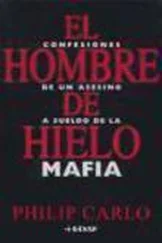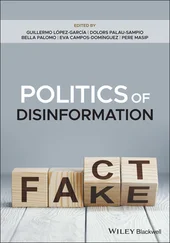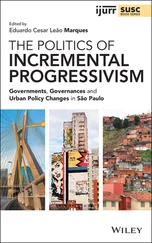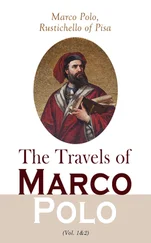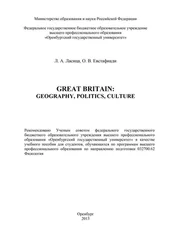165 151
166 152
167 153
168 154
169 155
170 156
171 157
172 158
173 159
174 160
175 161
176 162
177 163
178 164
179 165
180 166
181 167
182 168
183 169
184 170
185 171
186 172
187 173
188 174
189 175
190 176
191 177
192 178
193 179
194 180
195 181
196 182
197 183
198 184
199 185
200 186
201 187
202 188
203 189
204 190
205 191
206 192
207 193
208 194
209 195
210 196
211 197
212 198
213 199
214 200
215 201
216 202
217 203
218 204
219 205
220 206
221 207
222 208
223 209
224 210
225 211
226 212
227 213
228 214
229 215
230 216
231 217
232 218
233 219
234 220
235 221
236 222
237 223
238 224
239 225
240 226
241 227
242 228
243 229
244 230
245 231
246 232
247 233
248 234
249 235
250 236
251 237
252 238
253 239
254 240
255 241
256 242
257 261
258 262
259 263
260 264
261 265
262 266
263 267
264 268
265 269
266 270
267 271
268 272
269 273
270 274
271 275
272 276
273 277
274 278
275 279
276 280
277 281
278 282
279 283
280 284
281 285
282 286
283 287
284 288
285 289
286 290
287 291
288 292
289 293
290 294
291 295
292 296
293 297
294 298
295 299
296 300
297 301
298 302
299 303
300 304
301 305
302 306
303 307
304 308
A Riccardo
Marco Santoro
polity
Copyright © Marco Santoro 2022
The right of Marco Santoro to be identified as Author of this Work has been asserted in accordance with the UK Copyright, Designs and Patents Act 1988.
First published in 2022 by Polity Press
Polity Press
65 Bridge Street
Cambridge CB2 1UR, UK
Polity Press
101 Station Landing
Suite 300
Medford, MA 02155, USA
All rights reserved. Except for the quotation of short passages for the purpose of criticism and review, no part of this publication may be reproduced, stored in a retrieval system or transmitted, in any form or by any means, electronic, mechanical, photocopying, recording or otherwise, without the prior permission of the publisher.
ISBN-13: 978-0-7456-7067-6
ISBN-13: 978-0-7456-7068-3(pb)
A catalogue record for this book is available from the British Library.
Library of Congress Control Number: 2021938677
by Fakenham Prepress Solutions, Fakenham, Norfolk NR21 8NL
The publisher has used its best endeavours to ensure that the URLs for external websites referred to in this book are correct and active at the time of going to press. However, the publisher has no responsibility for the websites and can make no guarantee that a site will remain live or that the content is or will remain appropriate.
Every effort has been made to trace all copyright holders, but if any have been overlooked the publisher will be pleased to include any necessary credits in any subsequent reprint or edition.
For further information on Polity, visit our website: politybooks.com
Acknowledgements 
This book has been long in the making. In some form, it started in the late 1980s as an undergraduate thesis ( tesi di laurea ) under the guidance of Lorenzo Ornaghi and the late Gianfranco Miglio at the Catholic University of Milan. My ideas on mafia politics began with their teachings and provocative ideas regarding politics and theory. Moving from political theory to sociology by way of political and institutional history gave me many opportunities to encounter other approaches and meet many people. I would like to remember here the late Cesare Mozzarelli for giving me a sense of what the métier d’historien can be, and Marzio Barbagli for showing me what good empirical sociology should be, and what it cannot be.
A book published in Italian in 2007 ( La voce del padrino , a title which plays with ‘His Master’s Voice’ formula in ways that can work only in Italian) was a first major step in my research on mafia politics, to which this book is indebted for Chapter 6. I would like to thank Gianfranco Morosato and Sandro Mazzadra for making that publication possible.
In the years since then, many colleagues and friends have contributed to further shaping and refining my ideas, as well as offering venues for me to present and discuss them. Obviously, I cannot mention everyone, but here I would like to thank a few of the many who have helped pave the way to the publication of this book.
Thanks to Jeff Alexander for inviting me to the Yale Center for Cultural Sociology in 2008 to present my early ruminations on mafia culture structures, and to Philip Smith for reading and commenting on an early paper presented at a seminar on culture and power organized by Fredrik Engelstadt and Wendy Griswold in a wonderful place on a fiord near Oslo in December 2007. Thanks to Harrison C. White for our discussion with his students on the mafia while briefly visiting Columbia’s Department of Sociology and attending his lessons on language and society in 2008. Thanks to Randall Collins for inviting me to Las Vegas in 2011 to present an early version of the argument developed in this book (under the title of Chapter 7) at the annual Congress of the American Sociological Association, and to George Derluguian for organizing the Presidential Panel on mafias where I tried it out. Thanks to Christian Frankel and Paul du Gay for inviting me to the Copenhagen Business School in that same year to present and discuss an early version of Chapter 6.
Thank you, Cristiana Olcese and Mike Savage, for inviting me to the London School of Economics in 2013 to present my ideas on mafia and aesthetics (to be developed in my next book, hopefully) at a conference and then as a guest in the Sociology Department. Thanks to Nando dalla Chiesa for inviting me many times to the Summer School on organized crime and mafias that he has been directing at the University of Milan, offering a venue to discuss my ideas with colleagues and people from the antimafia movement (who usually disliked them). Last, but not least, thanks to Gisèle Sapiro for welcoming me to the EHESS in Paris in 2015 to present my research on the mafia as an invited scholar, and to Deborah Puccio-Den for discussing it in a dedicated seminar during my stay.
My colleagues at the former Department of Communication, University of Bologna, also deserve thanks for their discussion of a very early presentation of Chapter 5. Thanks to Claudio Paolucci for his support in that early phase. Fabio Dei has been supporting me more recently, also contributing anthropological references and criticism of my argument about the place of the gift in mafia politics.
Among colleagues and friends who read and commented on early versions of my argument from a scholarly perspective alien to mafia studies, I recall with pleasure Peter Bearman, Johan Heilbron, George Steinmetz and Alessandro Duranti. The late Alessandro Pizzorno was an insightful commentator of some early writings and an inspiring presence while writing this whole book.
Читать дальше


